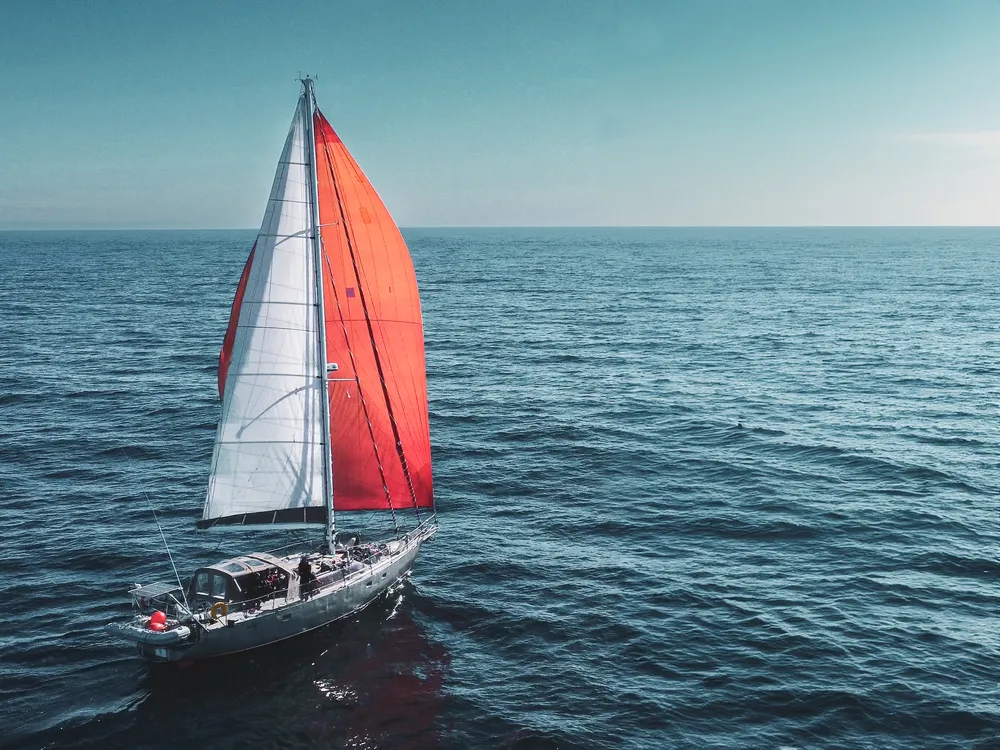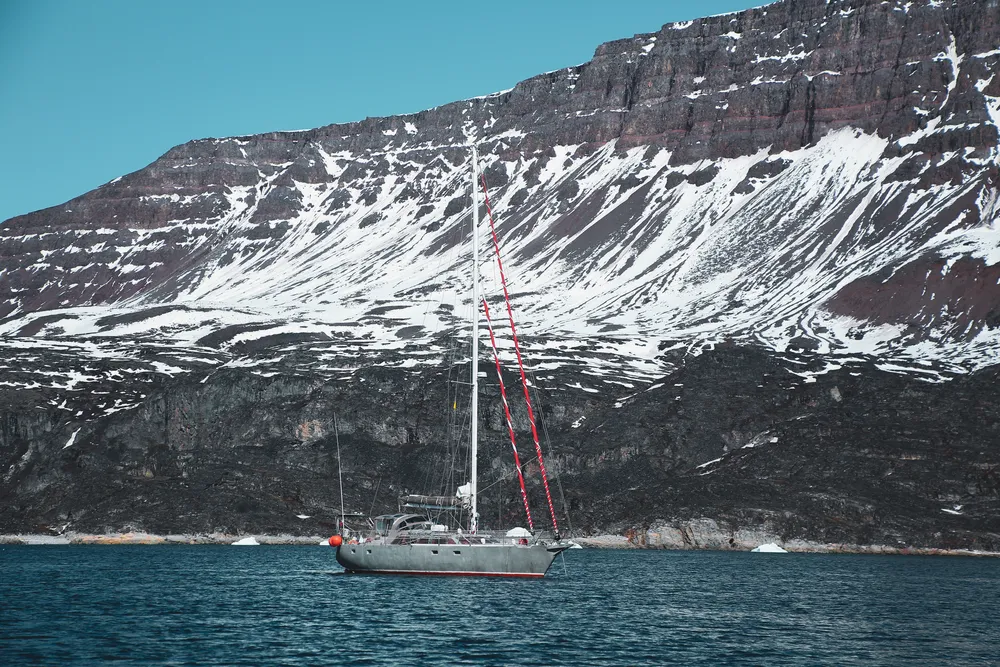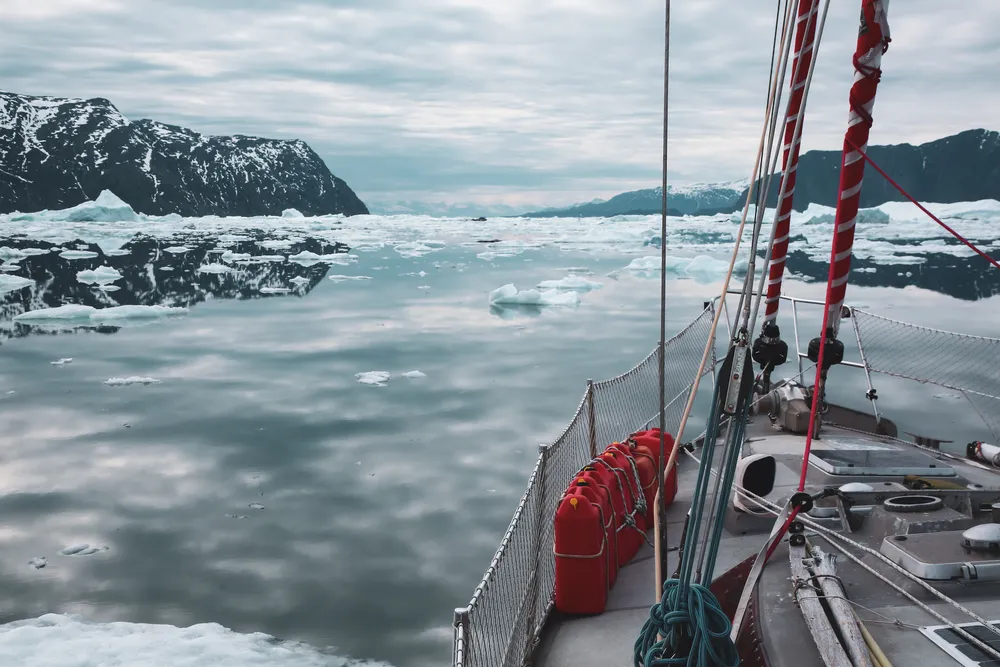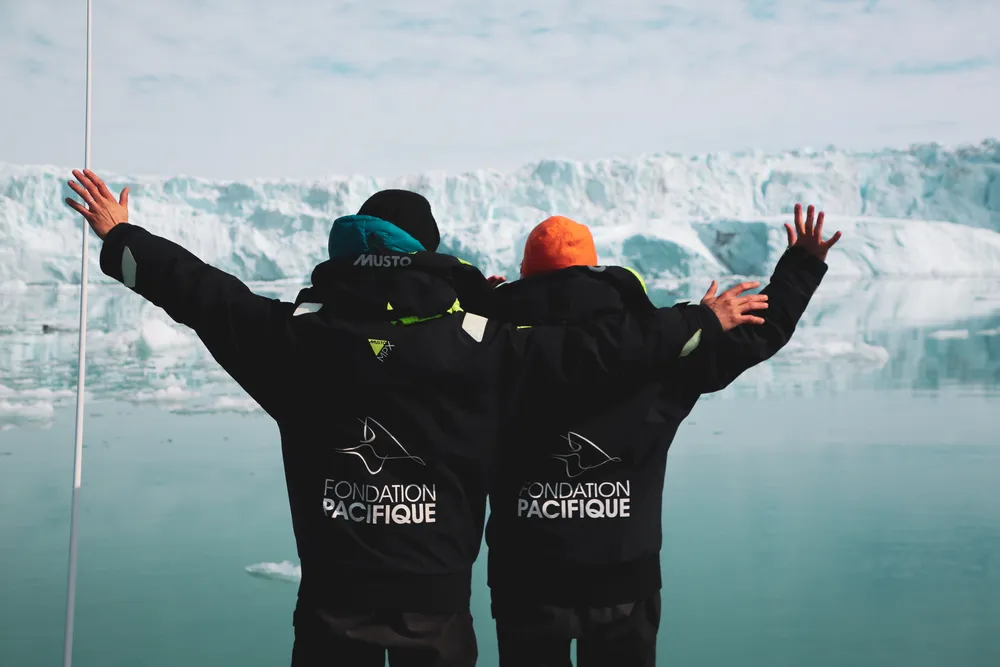In 2024, the Geneva-based organization enters the fifth and final year of its socio-artistic-scientific navigation project in the Far North. In anticipation of the finalization of its next cycle of expeditions, its director takes stock of Pacific’s most recent adventures.
Text: Oliver Dufour
Photos: Léa Dillard
Pacifique is going strong. Active on several of the world’s seas, the foundation has enjoyed a hectic 2023, and is gearing up for more of the same in the months ahead. One of the highlights of the various projects was the famous Northwest Passage, between Greenland and Alaska, which was completed last September by one of the crews in the fourth year of their project “The Arctic Expedition”.
A real adventure, always fraught with uncertainties when it comes to navigating the dreaded northern ice. The voyage finally lasted two months aboard the sailboat Que Sera, which Pacifique had to equip as Mauritius, its faithful schooner operating since the start of the adventure in 2020, was forced to rest for insurance reasons. Smaller than its predecessor, with eight places on board, this aluminum sailboat accomplished its mission perfectly, even if the course was not without its challenges.

Prisoner of the ice
When you set out to plan this kind of expedition, there are tons of unknowns,” points out Stéphanie Stiernon, Director of Pacifique. The Northwest Passage is only open for a limited time, and some years it doesn’t open at all. After about ten days of sailing, Que Sera found itself blocked by ice for a good week at the entrance to the channel leading to Pond Inlet, Nunavut. It was a very special experience for some of the people on board, for whom polar navigation was a new experience.
Usually, when you go on a trip, you have precise start and end dates. In this case, everything was shifted and uncertain, which wasn’t easy to manage for everyone,” she adds. Nevertheless, a small passageway opened up in early August, allowing the yacht to continue safely to the Inuit community to host the “Beyond Her Horizons” project, an all-women’s group whose aim was to document and honor the untold stories of Inuit and Canadian women in the history of Arctic exploration.

But we weren’t out of the woods yet, as the huge fires that swept across northern Canada during this period also disrupted our progress,” says Stephanie Stiernon. The airways were closed, preventing the planned crew changes. You could say that the trip was representative of current climate change. We tried to anticipate events as much as possible, but we’re still subject to the vagaries of nature. As part of our Arctic Change scientific project, conducted in collaboration with the University of Geneva, we had also planned to collect ice samples for greenhouse gas monitoring, but after leaving the passage, there wasn’t a single piece anywhere!”

Round trip
Nevertheless, the rewarding expedition came to a fitting end for the crew of Que Sera, one of only sixteen yachts to complete the Northwest Passage in 2023. This year, the last Arctic season for Pacific, saw the Foundation’s boat return to sea in mid-May. Since last September, the yacht had been in the shipyard for final preparations. She has since set sail again from Alaska with the aim of re-entering the passage in the opposite direction. In addition to its scientific and social research, this new year’s expedition is once again inviting artists taking part in Sillages, a poetic and drawn publication project. “We hope to welcome on board local artists from the Inuit community, with whom we have forged links during recent expeditions”, anticipates Stéphanie Stiernon.
As for the Fleur de Passion sailboat, back in operation following a 16-month refit after running aground on a coral reef in 2021, it has recommitted itself to an expedition with a group of young people in rehabilitation, notably in the Azores and Cape Verde. Earlier this year, the yacht was also in Senegal and Gambia for a scientific collaboration project to study mangroves.
In 2025, Pacifique will embark on a new cycle of objectives, for which the foundation has yet to determine the common thread. In order to carry out its various projects, the organization also relies on financial and material support from sponsors. Should you be interested, please contact us via the contact page on the foundation’s website: pacifique.ch/contact

Pacifique on display at fêtes maritimes
The coming summer promises to be a particularly festive one for Pacifique, with participation in two major naval events on the French Atlantic coast. From July 12 to 17, the foundation will moor its two boats, Mauritius and Fleur de Passion, at the fêtes maritimes de Brest. Every four years since 1992, this event has brought together over a thousand traditional boats from all over the world. From Brest harbor, the Pacific sailboats will then head for Douarnenez Bay, crossing the Iroise Sea to dock at the eponymous fêtes maritimes, from July 18 to 21. Once again, the aim is to mingle with the hundreds of boats representing the marine heritage that gather every two years in the port of Rosmeur.
This will be a great opportunity for the numerous visitors to get up close and personal with the splendid sailboats Mauritius, a 30 m steel schooner built in 1963, and Fleur de Passion, a traditional 33 m wooden ketch on a steel frame, converted in 1976 from a 1941 German minelayer. During these Breton celebrations, Pacifique will also set up a stand near its boats to present its various activities to visitors, including artistic workshops with partner illustrators, a photo exhibition of its expeditions, and a screening of its films on sails.

